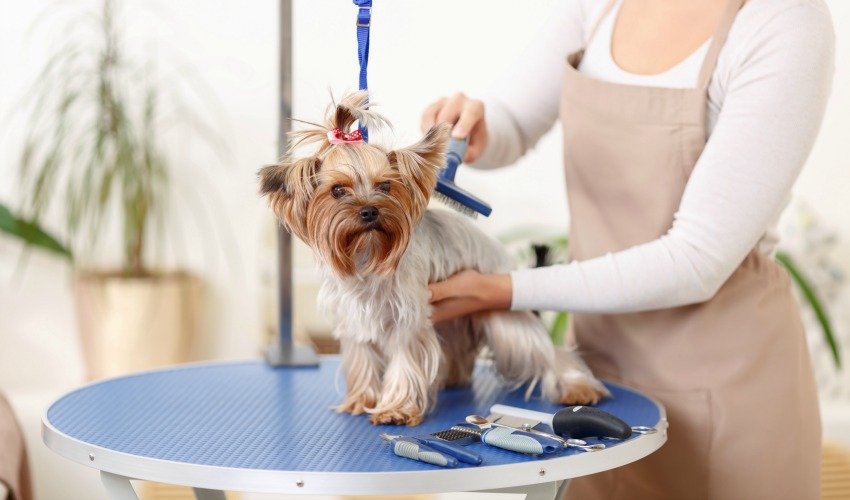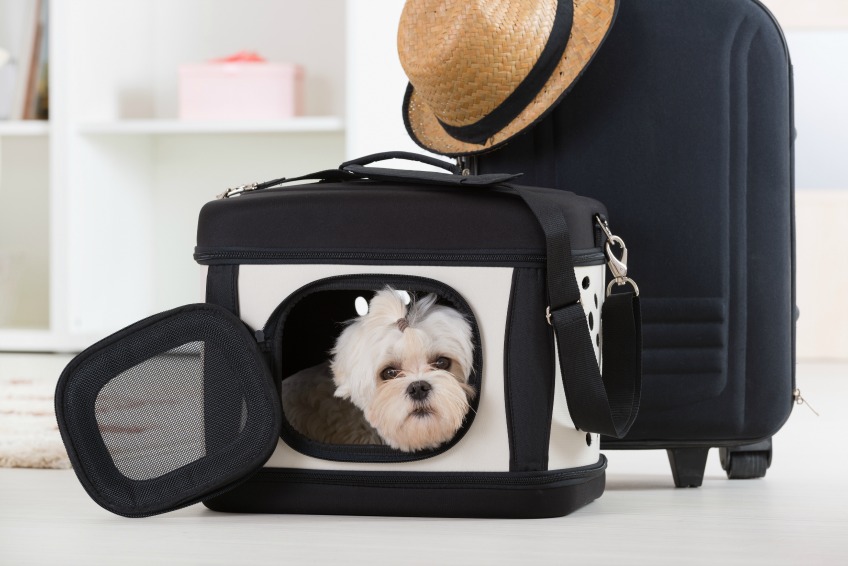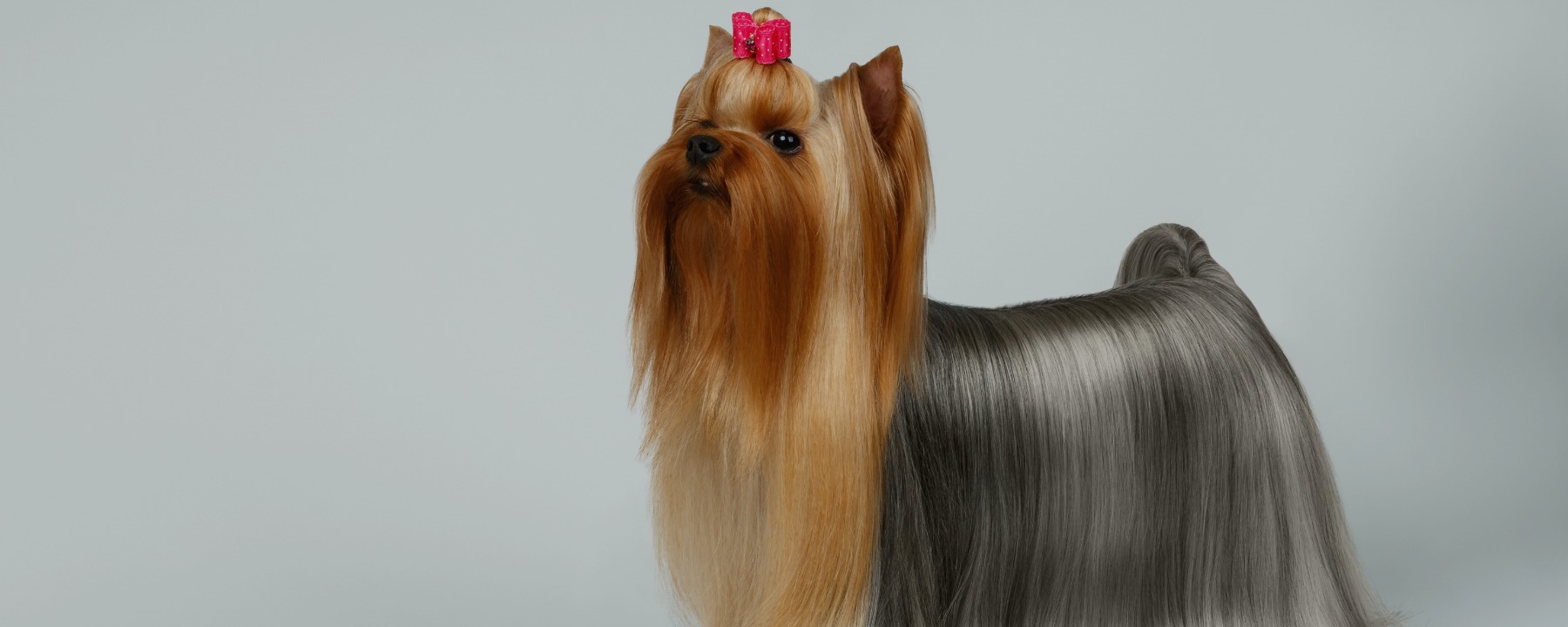Sometimes, your dog grooming clients will need a reality check when it comes to what’s best for their pup. Since you’re the expert, you can help raise awareness about what is safe for dogs and how to keep them healthy. You’ll be answering questions that allow you to educate owners in your salon.
What are the top things that clients will ask from a groomer? Read on for the requests you’ll hear all too often – and learn how to handle them!
1. A full shave
This is an obvious one – fur protects dogs and helps them balance their temperature. Without their luscious coats, dogs become vulnerable to sunburns and other elements! This can lead to irritation and your pup being uncomfortable in different temperatures. Keeping the fur short can help with most of the issues that would prompt someone to ask for a shave – a short coat will shed less, and be less likely to become matted.
There are only a few reasons why a dog ever needs to be completely shaved; this can be due to matting or other conditions, but it’s not always best for the dog! As a professional groomer, you’ll be making the decision on whether a dog needs to be shaved, or if he could just do with a fresh cut! Never shave a dog when you think it could cause problems.
To be fair, most clients won’t be educated on how their pup’s fur protects him. In this case, it’s your job to politely let them know how the coat acts as a second skin for dogs. They’ll appreciate the advice and see you as a credible dog expert!

2. Colorful dyes
Right – this is a big issue when it comes to dog coats. First of all, human hair dye should never be used on a pup’s fur. Period. Second, there are safe options for groomers to use if their clients are looking to brighten up their dog’s coat.
However, before putting any products on a dog’s coat, you need to be sure that these products are both safe for animals and will not irritate their skin. Some dogs will be sensitive to certain grooming products, so it’s your responsibility to test out small areas before diving in with a new product.
Once you’ve established that the product is safe, you can add the finishing touches! Chalking is a common touch after a groom. Many groomers will find chalk for animal fur, and use it to give their furry friends a temporary touch of color.
To be on the safe side, always stay away from finishing products that go onto a dog’s skin. This can cause irritation and make your pups uncomfortable!
3. A time limit
Every groomer should be privy to this – there’s no telling how long a groom could end up being. Especially when you’re faced with an anxious or scared dog, the need to take your time is priority number one. Rushing an appointment will heed a hasty groom, and can lead to injury for you and the dog!
If your clients are on a strict timeline, consider rebooking their appointment for a later date. Calmly explain that you want to do your best work, and you won’t make their dog uncomfortable to get the groom done quickly. Or, offer to perform just one or two grooming services instead of a full groom. This will keep their pup happy and healthy until they can bring him in for a complete appointment!

4. Weekly appointments
Although we say a dog shouldn’t be coming into your salon every week, there are various circumstances that can warrant it. Let’s start out by saying that dogs should only be bathed about once per month – over-bathing can dry out skin and cause irritation! If your clients think their dog needs a wash every week, more than likely there are a few things they can do to keep their pal clean.
For example, if their pup is outside rolling around most of the day, they should be diligent in brushing out any dirt or plants that stick to his fur. Plus, they can use a towel to wipe out any dirt from their dog’s fur. This will keep their pal smelling fresh and his coat shiny, without needing to be bathed. You can also recommend deodorizing sprays as an option!
Now, some dogs will have fur that becomes easily matted and tangled – these are the pups that you’ll see often. However, your clients can take preventative measures to leave more time between grooms. Giving your clients a quick lesson in brushing and combing their pup will help them take better care of his coat.
Don’t risk your business – find out why you need a dog grooming course for your career!



